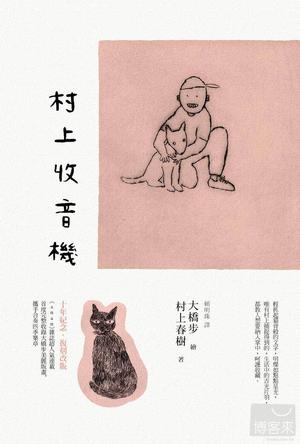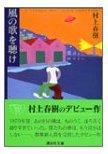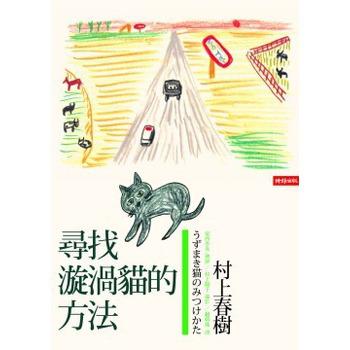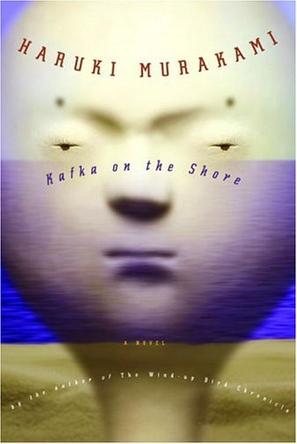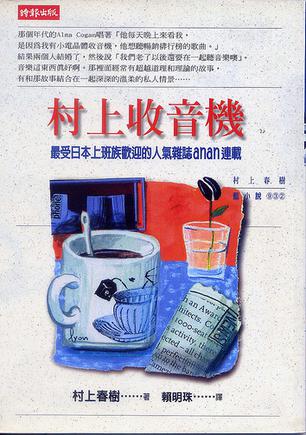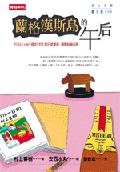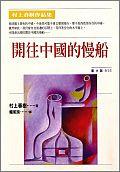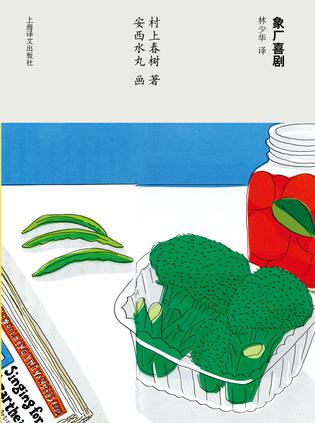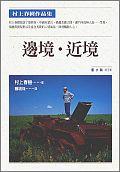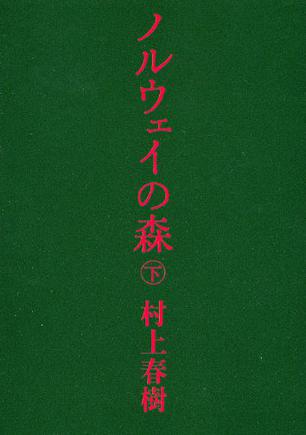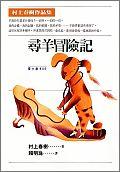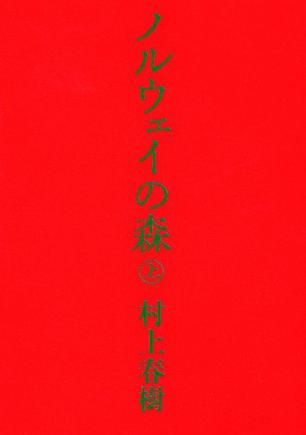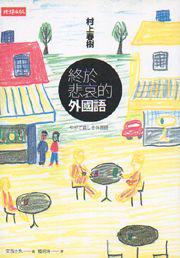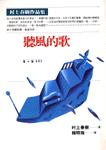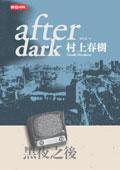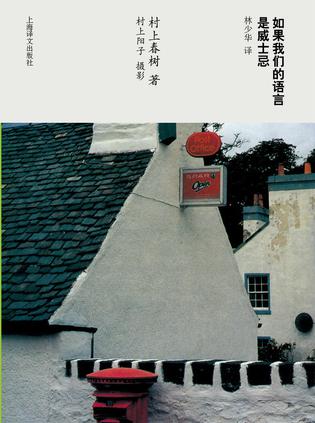欢迎来到相识电子书!
标签:村上春樹
-
村上收音機
十年紀念.復刻改版 32開精裝本 《anan》雜誌超人氣連載 首度完整收錄大橋步美麗版畫 攜手合奏四季樂章 輕抓起貓背般的文字,明燦如點點星光, 唯有村上捕捉得到的,生活中的吉光片羽, 都教人想要納入掌中,呵護收藏。 收錄2000年至2001年間的50篇隨筆, 關於有營養的音樂、袖珍型電晶體收音機、 要跳之前不妨先看一下、蘋果的心情、 太卷飯糰和棒球場…… 村上的世界就這樣一點一點 輕緩溫柔地滲入心中。 「憑著自己的雙腳一面跑在路上,一面看到的世界風景, 說起來真是非常美妙。嗯。」──村上春樹 -
風の歌を聴け
デビュー25周年記念。文字が大きくなった作家デビュー25周年を記念して、単行本表紙と同じデザインの文庫カバーに一新。文字サイズが大きくなって、とても読みやすくなりました。必読の青春バイブル。 -
村上春树
1979年以创作《且听风吟》走向文坛的村上春树,曾连续在2006年和2007年被视为诺贝尔文学奖获奖者的有力候补。所以,谁都无法否认这样一个事实,村上春树不只在“日本”,甚至已经成为“世界”级的知名作家。 在他的作品里,通过某种事物的缺失而表达出来的“失落感”、“孤独感”以及“绝望感”,是世界上获得了“富足”的物质生活之后的现代人、尤其是年轻人的共同感受。就此而言,村上春树在1979年步入文坛,这具有十分特殊的象征意义。 -
尋找漩渦貓的方法
收在這裡的文章,是村上春樹從1993年夏天到1995年夏天住在美國麻州的劍橋(與波士頓相連),並在鄰近的Tufts大學授課的生活剪影。在那之前,村上住在普林斯頓時的隨筆,已經整理在《終於悲哀的外國語》一書中了,因此本書就成為《終於悲哀的外國語》的續集。而且,因為當時村上正在寫長篇小說,因此這本書就想輕鬆一點來寫。也但願讀者肩膀不必繃得太緊,能夠放鬆下來悠閒地讀。全程馬拉松、貓喜歡看的錄影帶、到中國旅行、蔬菜的價格,乃至神戶大地震都是村上關注的題目,希望讀者也能從閱讀中找到「跑完馬拉松之後冰得透透的啤酒、好不容易找到的二手唱片、鄰家小貓的消息……」等小確幸(微小但確實的幸福)的絕妙滋味。 書中的文章並且一一搭配了安西水丸天真風格的彩色插圖,和村上陽子的素人生活攝影照片 -
Kafka on the Shore
With Kafka on the Shore, Haruki Murakami gives us a novel every bit as ambitious and expansive as The Wind-Up Bird Chronicle, which has been acclaimed both here and around the world for its uncommon ambition and achievement, and whose still-growing popularity suggests that it will be read and admired for decades to come. This magnificent new novel has a similarly extraordinary scope and the same capacity to amaze, entertain, and bewitch the reader. A tour de force of metaphysical reality, it is powered by two remarkable characters: a teenage boy, Kafka Tamura, who runs away from home either to escape a gruesome oedipal prophecy or to search for his long-missing mother and sister; and an aging simpleton called Nakata, who never recovered from a wartime affliction and now is drawn toward Kafka for reasons that, like the most basic activities of daily life, he cannot fathom. Their odyssey, as mysterious to them as it is to us, is enriched throughout by vivid accomplices and mesmerizing events. Cats and people carry on conversations, a ghostlike pimp employs a Hegel-quoting prostitute, a forest harbors soldiers apparently unaged since World War II, and rainstorms of fish (and worse) fall from the sky. There is a brutal murder, with the identity of both victim and perpetrator a riddle–yet this, along with everything else, is eventually answered, just as the entwined destinies of Kafka and Nakata are gradually revealed, with one escaping his fate entirely and the other given a fresh start on his own. Extravagant in its accomplishment, Kafka on the Shore displays one of the world’s truly great storytellers at the height of his powers. -
村上收音機
《村上收音機》一書集結村上自2000年3月在「anan」雜誌上連載的50篇隨筆。每篇約千字的小品,話題從「通心粉」、「西裝」、「炸丸子」到「維吉尼亞的狼」,以個人化、生活化的筆法,懇切、隱約地述說,逐漸滲透讀者的心。村上這次也收錄許多新鮮的話題,像「柿子的問題」、「胡蘿蔔(或人蔘)先生」、「驍勇的音樂」;值得一提的是村上談到許多有關「和食」的話題(ex:鰻魚、壽司捲、壽喜燒等)。全書散發著村上隨筆所特有的「靜謐」魅力。 -
Norwegian Wood
在线阅读本书 Book Description First American Publication This stunning and elegiac novel by the author of the internationally acclaimed Wind-Up Bird Chronicle has sold over 4 million copies in Japan and is now available to American audiences for the first time. It is sure to be a literary event. Toru, a quiet and preternaturally serious young college student in Tokyo, is devoted to Naoko, a beautiful and introspective young woman, but their mutual passion is marked by the tragic death of their best friend years before. Toru begins to adapt to campus life and the loneliness and isolation he faces there, but Naoko finds the pressures and responsibilities of life unbearable. As she retreats further into her own world, Toru finds himself reaching out to others and drawn to a fiercely independent and sexually liberated young woman. A poignant story of one college student's romantic coming-of-age, Norwegian Wood takes us to that distant place of a young man's first, hopeless, and heroic love. Amazon.co.uk "I once had a girl, or should I say, she once had me" "Norwegian Wood" (Lennon/McCartney). With Norwegian Wood Murakami, best known as the author of off-kilter classics such as the Wind Up Bird Chronicle, A Wild Sheep Chase and Hard Boiled Wonderland, finally achieved widespread acclaim in his native Japan. The novel sold upwards of 4 million copies and forced the author to retreat to Europe, fearful of the expectations accompanying his new-found cult status. The novel is atypical for Murakami: seemingly autobiographical, in the tradition of many Japanese "I" novels, Norwegian Wood is a simple coming of age tale set, primarily, in 1969/70, the time of Murakami's own university years. The political upheavals and student strikes of the period form the backdrop of the novel but the focus here is the young Watanabe's love affairs and the pain (and pleasure) of growing up with all its attendant losses, (self-)obsessions and crises. The novel is split into two volumes and beautifully presented here in a "gold" box containing both the green book and the red book. Young Japanese fans became so obsessed with the work that they would dress entirely in one or other colour denoting which volume they most identified with. And the novel is hugely affecting, reading like a cross between Plath's Bell Jar and Vizinczey's In Praise of Older Women, if less complex and ultimately less satisfying than Murakami's other, more allegorical, work. He captures the huge expectation of youth, and of this particular time in history, for the future and for the place of love in it. He also saturates the work with sadness, an emotion that can cripple a novel but which here underscores the poignancy of the work's rather thin subject matter. --Mark Thwaite Amazon.com In 1987, when Norwegian Wood was first published in Japan, it promptly sold more than 4 million copies and transformed Haruki Murakami into a pop-culture icon. The horrified author fled his native land for Europe and the United States, returning only in 1995, by which time the celebrity spotlight had found some fresher targets. And now he's finally authorized a translation for the English-speaking audience, turning to the estimable Jay Rubin, who did a fine job with his big-canvas production The Wind-Up Bird Chronicle. Readers of Murakami's later work will discover an affecting if atypical novel, and while the author himself has denied the book's autobiographical import--"If I had simply written the literal truth of my own life, the novel would have been no more than fifteen pages long"--it's hard not to read as at least a partial portrait of the artist as a young man. Norwegian Wood is a simple coming-of-age tale, primarily set in 1969-70, when the author was attending university. The political upheavals and student strikes of the period form the novel's backdrop. But the focus here is the young Watanabe's love affairs, and the pain and pleasure and attendant losses of growing up. The collapse of a romance (and this is one among many!) leaves him in a metaphysical shambles: I read Naoko's letter again and again, and each time I read it I would be filled with the same unbearable sadness I used to feel whenever Naoko stared into my eyes. I had no way to deal with it, no place I could take it to or hide it away. Like the wind passing over my body, it had neither shape nor weight, nor could I wrap myself in it. This account of a young man's sentimental education sometimes reads like a cross between Sylvia Plath's The Bell Jar and Stephen Vizinczey's In Praise of Older Women. It is less complex and perhaps ultimately less satisfying than Murakami's other, more allegorical work. Still, Norwegian Wood captures the huge expectation of youth--and of this particular time in history--for the future and for the place of love in it. It is also a work saturated with sadness, an emotion that can sometimes cripple a novel but which here merely underscores its youthful poignancy. --Mark Thwaite From Publishers Weekly In a complete stylistic departure from his mysterious and surreal novels (The Wind-Up Bird Chronicle; A Wild Sheep Chase) that show the influences of Salinger, Fitzgerald and Tom Robbins, Murakami tells a bittersweet coming-of-age story, reminiscent of J.R. Salamanca's classic 1964 novel, LilithAthe tale of a young man's involvement with a schizophrenic girl. A successful, 37-year-old businessman, Toru Watanabe, hears a version of the Beatles' Norwegian Wood, and the music transports him back 18 years to his college days. His best friend, Kizuki, inexplicably commits suicide, after which Toru becomes first enamored, then involved with Kizuki's girlfriend, Naoko. But Naoko is a very troubled young woman; her brilliant older sister has also committed suicide, and though sweet and desperate for happiness, she often becomes untethered. She eventually enters a convalescent home for disturbed people, and when Toru visits her, he meets her roommate, an older musician named Reiko, who's had a long history of mental instability. The three become fast friends. Toru makes a commitment to Naoko, but back at college he encounters Midori, a vibrant, outgoing young woman. As he falls in love with her, Toru realizes he cannot continue his relationship with Naoko, whose sanity is fast deteriorating. Though the solution to his problem comes too easily, Murakami tells a subtle, charming, profound and very sexy story of young love bound for tragedy. Published in Japan in 1987, this novel proved a wild success there, selling four million copies. (Sept.) Book Dimension length: (cm)20.6 width:(cm)13.9 -
遠方的鼓聲
「有一天早上醒來,側耳傾聽時,忽然覺得好像聽見遠方的大鼓聲。從很遙遠的地方,從很遙遠的時間,傳來那大鼓的聲音。非常微弱。而且在聽著那聲音之間,我開始想無論如何都要去做一次長長的旅行。」 於是村上春樹在他的 37 歲至 40 歲的 3 年之間,也就是 1986 年至 1989 年之間,離開日本去做一次漫長的旅行。雖然紮營主要據點的地址暫且設在羅馬,但如果喜歡上什麼地方,就會在那裡租一間附有廚房的公寓,生活上幾個月。而想到什麼地方去時,就又移動到另一個地方去。所以行跡橫跨希臘、羅馬、義大利等歐洲古城。 3 年之間,村上寫了兩本長篇小說。一本是《挪威的森林》,另一本是《舞.舞.舞》。然後也完成《電視人》的短篇集。另外還翻譯了幾本書。所以這兩本小說宿命性地滲進異國的影子。 收錄在這本書的文章,就是村上海外旅行 3 年速描的累積。從中讀者可看到不同於小說的村上春樹,也就是說,村上春樹異地生活的現實身影。(摘自誠品網路書店) -
蘭格漢斯島的午後
本書中所收錄的,是村上春樹與安西水丸先生於兩年之間發表在CLASSY 這本雜誌上的二十五篇文章與圖畫。村上春樹覺得與水丸兄共事是相當愉快的體驗。村上說這些文章,很像在一家樸素而氣氛良好的酒吧吧台寫信給友人的情況。走進店裡,在吧台前坐下,用眼神與酒保打個招呼,酒保送上辛辣得恰到好處的酒,古老的歌曲輕聲播放著。於是村上拿出筆記本與原子筆開始動筆「近來好嗎……」。 類似這樣的感覺──在一家樸素而氣氛良好的酒吧吧台寫信給友人的情況,對村上而言,是一種「安西水丸性」。於是,村上就是像在給誰寫信一樣,寫出《蘭格漢斯島的午後》一篇篇文章,他總是將忽然浮現在腦海的東西原封不動信手寫下,然後直接裝進信封寄給安西水丸先生,讓他配上插圖。村上說,自己的文章能夠配上水丸兄的畫作,真的是非常幸福的文章。 原則上,村上春樹通常是在沒喝酒的狀況下寫東西,但若想到文章是要配上安西水丸的畫作,他就會不覺信步走到廚房,不覺順手調了摻水威士忌,然後邊喝邊繼續寫作。 村上說:「說得極端些,我那些要讓安西水丸先生繪製插圖的文章,必須滲透著『水丸性』才行。」 究竟,所謂的水丸性到底是什麼呢? 根據村上的說法,即使他是在自家中寫作,他也會讓自己想像出是在一間酒吧吧台寫信給友人;看著一篇篇文章出來,村上形容「它們像一生下來身上就裹著『水丸性』的外衣,非常舒服地安頓在圖畫的旁邊」。 這種搭配「水丸性」寫出的文章,是何味道?不免讓人好奇。 對於這樣的文圖搭配,繪圖者安西水丸在書中說著:「到今天為止,我曾經和村上春樹兄合作過各式各樣的案子,但是每個月繪製這麼大幅的圖,這份工作倒還是第一次。」雖只是簡單的幾句話,即可看出,《蘭格漢斯島的午後》的確是本空前完美組合著作。 -
開往中國的慢船
本書依照年代先後順序,收錄了由1980年春到1982年夏所發表的 7 篇短篇。如果以長篇做為里程碑的話,則在《1973年的彈珠玩具》發表後寫了最初的 4 篇,在《尋羊冒險記》發表後寫出後面的 3 篇。因此在《袋鼠通信》和《下午最後一片草坪》之間,隔了將近一年的空白。這是村上第一本短篇集。地球儀上黃色的中國。 今後我可能不會去那個地方。那不是為我而存在的中國。雖然如此,我仍會坐在港邊的石階上,等待著空白的水平線上,可能會出現的開往中國的慢船…… -
象厂喜剧
本书是村上春树的彩图小小说集。是由13个故事组成,配有多幅彩色插图,内容均为作者的奇思妙想,文笔幽默有趣。书末还有两位作家和画家的对谈,讲述了他们合作过程中的趣闻。 这本书是作家村上春树和画家西安水丸的第一次合作。书中的《镜中的火烧云》,插图竟然是水瓶和水杯,而《双胞胎镇的双胞胎大会》,插图竟然是飞机和汽车。双方随随便便地一凑,便有了这本漂亮的超短篇小说集。 -
邊境.近境
我本來就喜歡旅行記這東西, 從以前就喜歡。 對我來說, 我覺得寫旅行遊記是非常貴重的文章修行。 ……技術是必要的, 不但必須要有固定的文體, 而且當然必須要有熱情、愛情,和感動, 在這意義上寫旅行記, 對於身為小說家的我, 也是非常好的學習。──村上春樹 -
ノルウェイの森 下
デビュー25周年記念。文字が大きくなった単行本表紙と同じデザインの文庫カバーに変更。1987年に発表されたあの赤と緑の表紙が文庫サイズに。文字組みもゆったりと読みやすくなりました。 -
尋羊冒險記
「這頭看出什麼來了吧?」男人問。「種類不一樣。」我說。「對。除了從右邊算起的第三頭羊,其他都是普通的Suffolks種。……結論是,這種羊不在存在於日本。而且可能全世界也沒有這樣的羊。所以,現在你正在看的是一頭應該不存在的羊。」 我拿著放大鏡,試著再觀察一次……仔細看之後,發現羊背上正中央一帶,有一個像是咖啡濺出來所形成的淺色調的斑點紋。…… 「看得出背上有個很淡的斑點對嗎?」「不是斑點。」那人說。「是星形的斑紋。請你跟這個對照看看。」 -
ノルウェイの森 上
デビュー25周年記念。文字が大きくなった単行本表紙と同じデザインの文庫カバーに変更。1987年に発表されたあの赤と緑の表紙が文庫サイズに。文字組みもゆったりと読みやすくなりました。 -
終於悲哀的外國語
這是村上春樹一九九○年秋天開始至一九九三年之間,在普林斯頓大學任教時寫的隨筆散文。有別於旅遊歐洲時《遠方的鼓聲》的旅行書寫,這是村上實際「歸屬」於美國這個社會,在這裡生活的觀察紀錄,以照片來說,是他「從普通的距離,拍攝極其平常的東西」。他寫了當時正在發生的波灣戰爭、拜訪費滋潔羅的孫女的點滴、在美國跑步與在日本跑步有何不同、美國大學的階級制度等等。 筆調有村上一貫的輕鬆幽默,比如〈禁止攜帶酸梅乾飯盒入場〉一文中,這句話要說的其實是美國的反日浪潮。然而,雖然是生活在美國,村上春樹終於是個stranger,是個外國人,因此,他總覺得有一種深深的悲哀,被一種「不是不用學就自然明白的語言」團團圍住,這種狀況就包含著悲哀的東西。這也就是書名《終於悲哀的外國語》的由來。 -
聽風的歌
很久沒有感覺到夏天的香氣了。 海潮的香、遠處的汽笛、 女孩子肌膚的觸覺、潤絲精的檸檬香、 黃昏的風、淡淡的希望、夏天的夢……。 但是這些簡直就像沒對準的描圖紙一樣, 一切的一切都跟回不來的過去, 一點一點地錯開了。 -
黑夜之後
描寫「深夜11點56分」到隔天黎明「清晨6點52分」之間所發生的事。夜遊人、失眠人必備之作。
热门标签
下载排行榜
- 1 梦的解析:最佳译本
- 2 李鸿章全传
- 3 淡定的智慧
- 4 心理操控术
- 5 哈佛口才课
- 6 俗世奇人
- 7 日瓦戈医生
- 8 笑死你的逻辑学
- 9 历史老师没教过的历史
- 10 1分钟和陌生人成为朋友

